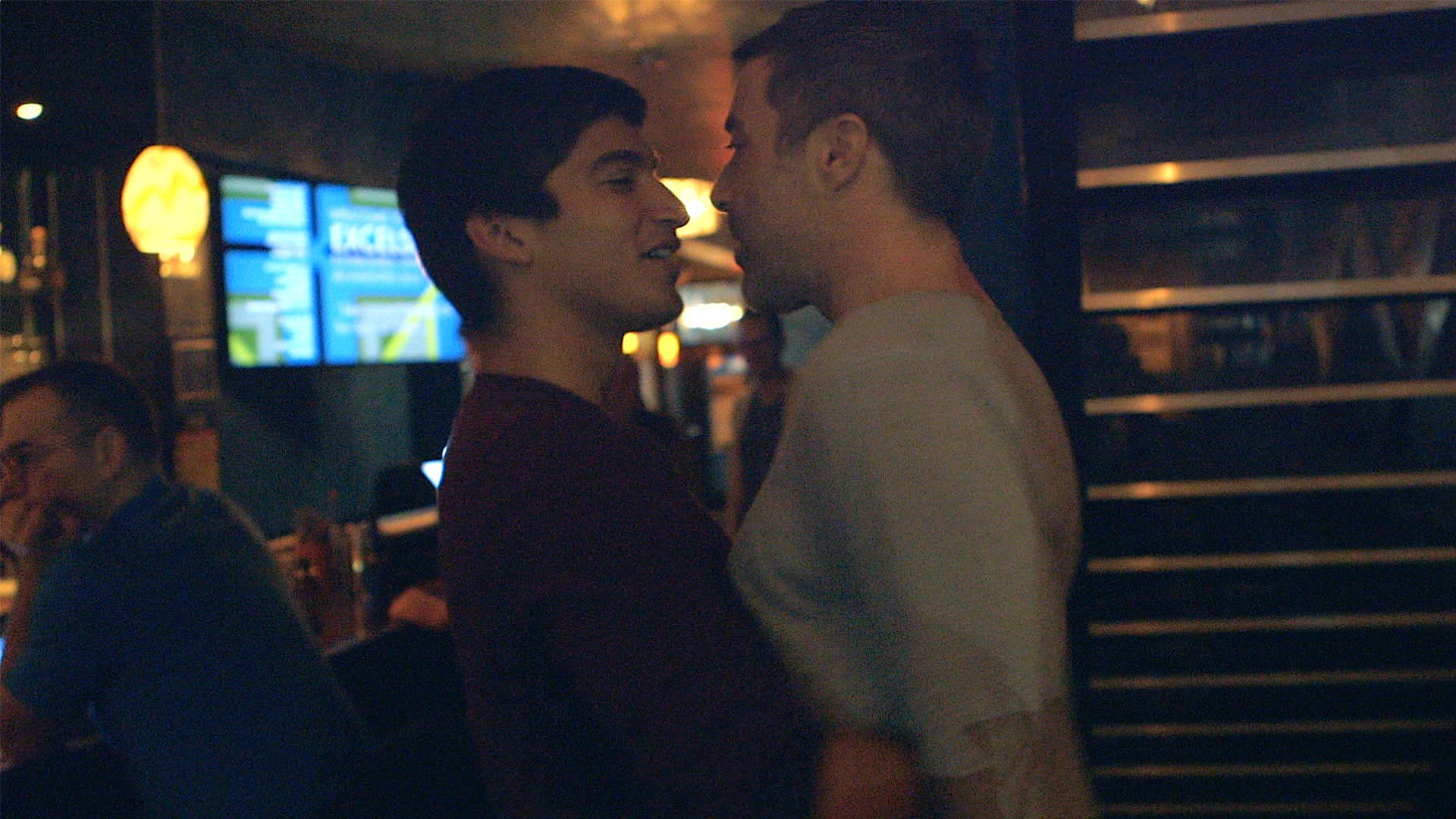Igor Madjinca / Stocksy
Fighting Words is Tonic's opinion column. Send pitches to tonic@vice.com.“You shouldn’t be eating that pizza. It’s Pride. You’re supposed to be on the Pride Diet: water and salad.”I rolled my eyes and inhaled the rest of my slice. I had moved to Denver from a small city in Missouri a few years prior and had recently come out. I was attending my first Gay Pride Celebration with a small group of gay men I had befriended earlier that summer (my first gaggle!) and was eager to experience all that my newly embraced gayness had to offer; however, this interaction with one of my new “friends” deflated me. I wondered if the stereotypes about gay men being shallow and bitchy were true, and I worried about my future relationships within my newfound community.Much of my work as a therapist revolves around LGBTQ+ individuals. As I’ve sought to learn more about our history, struggles, and victories, I've uncovered some sad realities about queer mental health—specifically, that gay and bi men are at higher risk for depression and other mental health issues. (The mental health outcomes for queer women are a bit more mixed). Research indicates that much of this disparity exists because of the stress LGBTQ+ people incur from living in a homophobic society.Before I came out, I knew those stressors existed. No one had to tell me that there was a chance I’d be bullied, discriminated against, or rejected by friends and family for being gay. It made sense to me that factors like those would affect a gay or bi person’s mental health. However, I was not prepared for the stressors that came from within the community. And to be honest, several years after coming out, these stressors are still the most difficult for me to deal with.I found a term for this negativity within the community: intra-minority stress is the stress that gay and bi people experience as a result of perceived judgment in their social and sexual interactions with other gay and bisexual peers. While I was living this experience, the theory was introduced to me by John Pachankis, an LGBTQ+ mental health professor and researcher at Yale.In Pachankis’s early research, he met with gay and bi men to interview them about the stress they experienced. He hadn’t considered that stress experienced from within the gay and bi community would be significant; however, he quickly realized he had stumbled onto something complex and important.“I had gone into those interviews thinking they would confirm the stigma-related stressors that we know exist: rejection from parents, peers, bullying, rejection from church communities,” he says. “But in almost every case, they also mentioned that a primary source of stress in their lives were things related to other gay men.”
More from Tonic:
And this kind of stress seems to manifest in a variety of ways—body image, pop culture knowledge, or socioeconomic pressures, to name a few.“A lot of money goes into keeping up with trends,” says Ben Fetzner, a research assistant at Pachankis’s lab. “There is a cost to being queer, and it is very clear if you can't afford it. When I am rejected by members of the gay community, it often feels to me like a simultaneous rejection of me as ‘not queer enough’ and also ‘not rich enough.’”My friend Ryan Kincaid laments the “gay enough” or “cool enough” requirements placed on him by other gay men. “I might be expected to know the latest thing on Broadway, the latest slang, or who was eliminated last week on RuPaul’s Drag Race or fear being a ‘bad gay.’ Knowledge of these topics and others, such as pop music, can sometimes seem like prerequisites for inclusion in the larger gay community.”Another friend, Mike Mangino, tells me he struggled to navigate how over-sexualized gay dating was when he first came out. When he’d meet a guy, the expectation to send nudes was quite high. “When I would deny such requests…I would get called a ‘prude’ or it would be implied that I wasn't ‘having fun’ the way I should be,” he tells me.Why would a group of people who have historically experienced so much shame and stigma from society dole out that same kind of punishment onto each other?It might be tempting to opine that gay and bi men are just bitchy, like many of the stereotypes tell us. But Pachankis has a more enlightened explanation. “We know that status-competition among men is stressful, and we know that gay and bisexual men compete with each other for social and sexual gain. This wouldn’t be blaming straight people or blaming gay people, that would be just blaming masculinity. And when you have a community made up of men, the effects of masculinity might get amplified.”While there’s little to no research on intra-minority stress for women in the community, it clearly exists. “There is an issue with queer women, regardless of their identity, not feeling queer enough or feeling stereotyped by their gender presentation,” says Erin McConocha, a queer woman and the project coordinator for Pachankis’ research lab. “People make assumptions and reinforce the butch-femme dichotomy…people feel really pigeon-holed into certain roles.” McConocha says these themes arose from unpublished qualitative interviews she and her team conducted with several queer women.After sitting down with several experts and other LGBTQ+ people to understand the stress gay and bi people experience from each other, I walked away with one final conclusion: I still think the guy who called me out for eating pizza during Pride is an asshole. But his attitude likely stems from a number of factors (on top of experiencing homophobia from non-LGBTQ people), such as poor modeling from other men and being a member of a gender that emphasizes conquest and competition.If you’re a gay or bi person reading this and nodding your head emphatically, please know this: You do not need to fear your community. You are part of a long lineage of people who have shown great resilience in the face of adversity. They have demonstrated enormous creativity to forge relationships and families. And our queer ancestors have fought hard to fight the structural stigma that kept so many of us in the closet and shadows of society for so long.But every now and then you will encounter an asshole. And when you do, know they’re likely doing their best. Recognize that they’re probably viewing you as a threat because of the toxic and homophobic bullshit we’ve all been swimming in for a long time. Then, let them know that they don’t have to go at it alone. And that eating pizza on Pride is okay too.Sign up for our newsletter to get the best of Tonic delivered to your inbox.
Advertisement
Advertisement
More from Tonic:

And this kind of stress seems to manifest in a variety of ways—body image, pop culture knowledge, or socioeconomic pressures, to name a few.“A lot of money goes into keeping up with trends,” says Ben Fetzner, a research assistant at Pachankis’s lab. “There is a cost to being queer, and it is very clear if you can't afford it. When I am rejected by members of the gay community, it often feels to me like a simultaneous rejection of me as ‘not queer enough’ and also ‘not rich enough.’”My friend Ryan Kincaid laments the “gay enough” or “cool enough” requirements placed on him by other gay men. “I might be expected to know the latest thing on Broadway, the latest slang, or who was eliminated last week on RuPaul’s Drag Race or fear being a ‘bad gay.’ Knowledge of these topics and others, such as pop music, can sometimes seem like prerequisites for inclusion in the larger gay community.”Another friend, Mike Mangino, tells me he struggled to navigate how over-sexualized gay dating was when he first came out. When he’d meet a guy, the expectation to send nudes was quite high. “When I would deny such requests…I would get called a ‘prude’ or it would be implied that I wasn't ‘having fun’ the way I should be,” he tells me.
Advertisement
